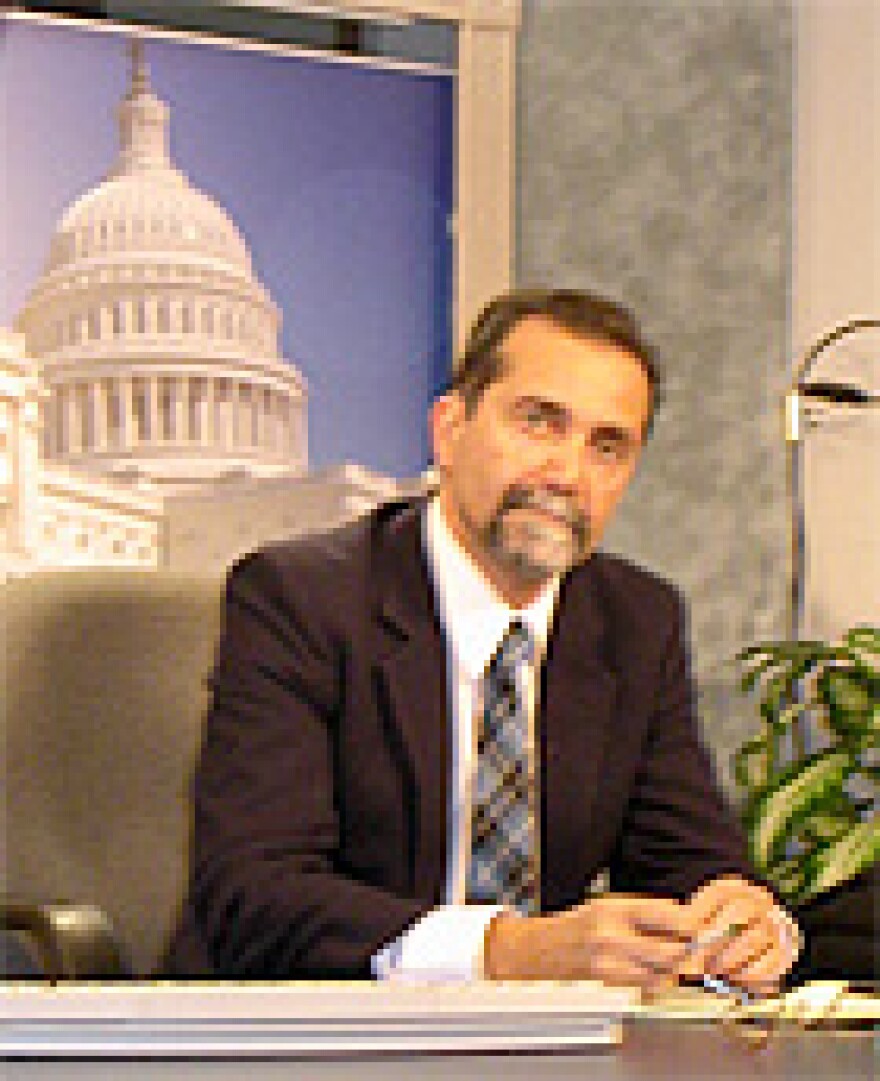

You can hear many of today's top headlines on NPR and npr.org. Across the Arab world, millions of people will get some of those same stories -- from a different perspective.
The television network Al Jazeera broadcasts news to 22 Arab countries. As Steve Inskeep reports for All Things Considered, the network is now planning a dramatic increase in its coverage of the United States.
Americans became familiar with Al Jazeera when it first broadcast videotapes of Osama bin Laden and sold the footage to other networks. Now the channel is covering preparations for a possible U.S. war against Iraq.
Top U.S. officials, including Defense Secretary Donald Rumsfeld and Secretary of State Colin Powell, have appeared on Al Jazeera.
Al Jazeera's Washington bureau chief, Hafez al-Mirazi, leads five U.S.-based correspondents. Within a few months, the network plans to double that number.
Al-Mirazi has heard the complaints that Al Jazeera presents a pro-Arab, anti-U.S. view of the world. But he says things are no different than they are on U.S. news networks. "Nobody could claim neutrality," he says. "We reflect the Arab and the Muslim perspective." But that doesn’t mean the network is a house organ for Arab governments, he says. It simply means the network must serve its audience.
Why is the network increasing its coverage of the United States? "This is the superpower," says al Mirazi. "The only superpower. And it is in everybody's life. This is the country (that's) influencing events all over the world, and people all over the world like to know what's going on there."
Copyright 2022 NPR. To see more, visit https://www.npr.org.


